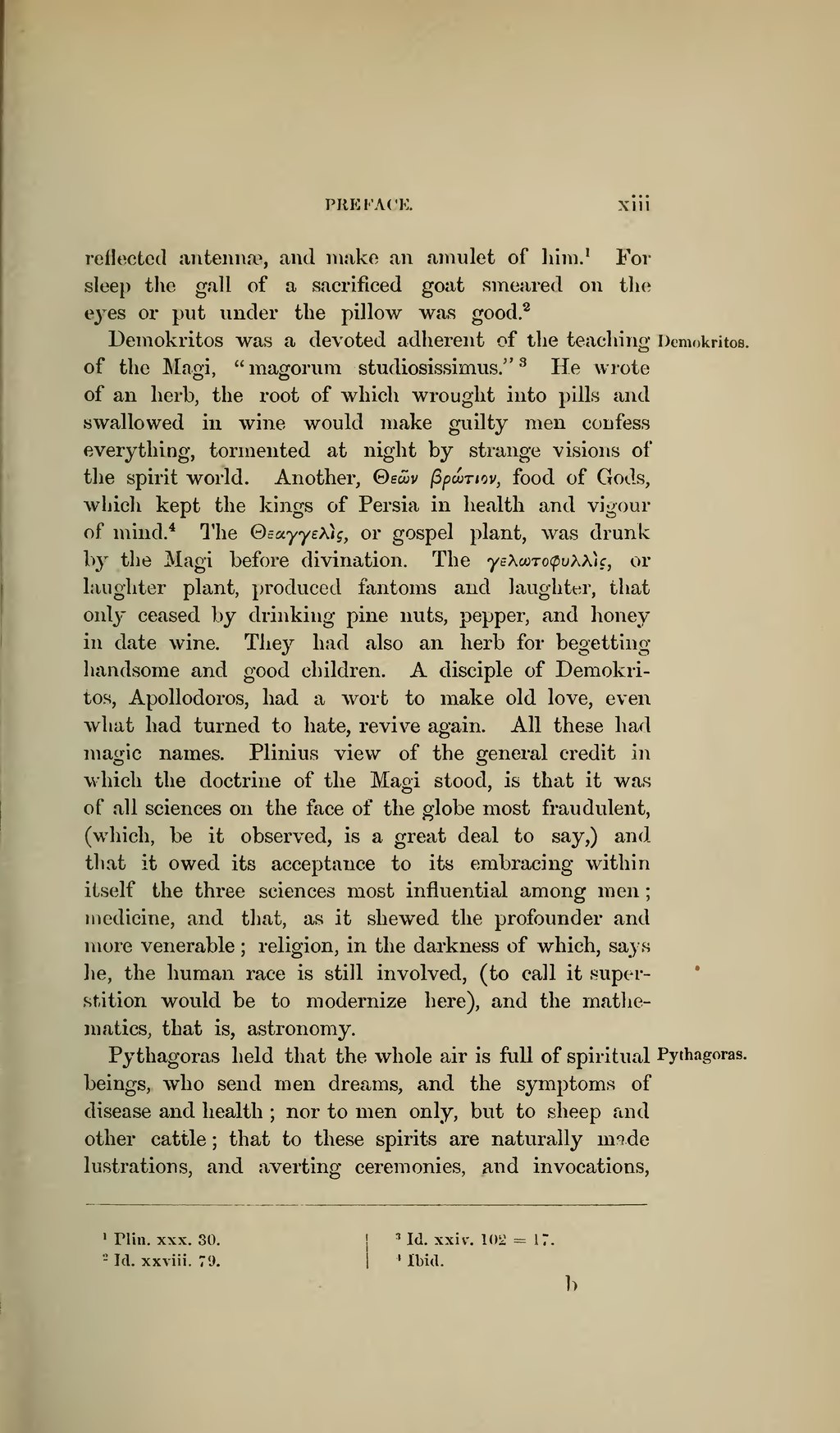reflected antennæ, and make an amulet of him.[1] For sleep the gall of a sacrificed goat smeared on the eyes or put under the pillow was good.[2]
Demokritos.Demokritos was a devoted adherent of the teaching of the Magi, "magorum studiosissimus."[3] He wrote of an herb, the root of which wrought into pills and swallowed in wine would make guilty men confess everything, tormented at night by strange visions of the spirit world. Another, Θεῶν βρώτιον, food of Gods, which kept the kings of Persia in health and vigour of mind.[4] The Θεαγγελὶς, or gospel plant, was drunk by the Magi before divination. The γελωτοφνλλὶς, or laughter plant, produced fantoms and laughter, that only ceased by drinking pine nuts, pepper, and honey in date wine. They had also an herb for begetting handsome and good children. A disciple of Demokritos, Apollodoros, had a wort to make old love, even what had turned to hate, revive again. All these had magic names. Plinius view of the general credit in which the doctrine of the Magi stood, is that it was of all sciences on the face of the globe most fraudulent, (which, be it observed, is a great deal to say,) and that it owed its acceptance to its embracing within itself the three sciences most influential among men; medicine, and that, as it shewed the profounder and more venerable; religion, in the darkness of which, says he, the human race is still involved, (to call it superstition would be to modernize here), and the mathematics, that is, astronomy.
Pythagoras.Pythagoras held that the whole air is full of spiritual beings, who send men dreams, and the symptoms of disease and health; nor to men only, but to sheep and other cattle; that to these spirits are naturally made lustrations, and averting ceremonies, and invocations,
